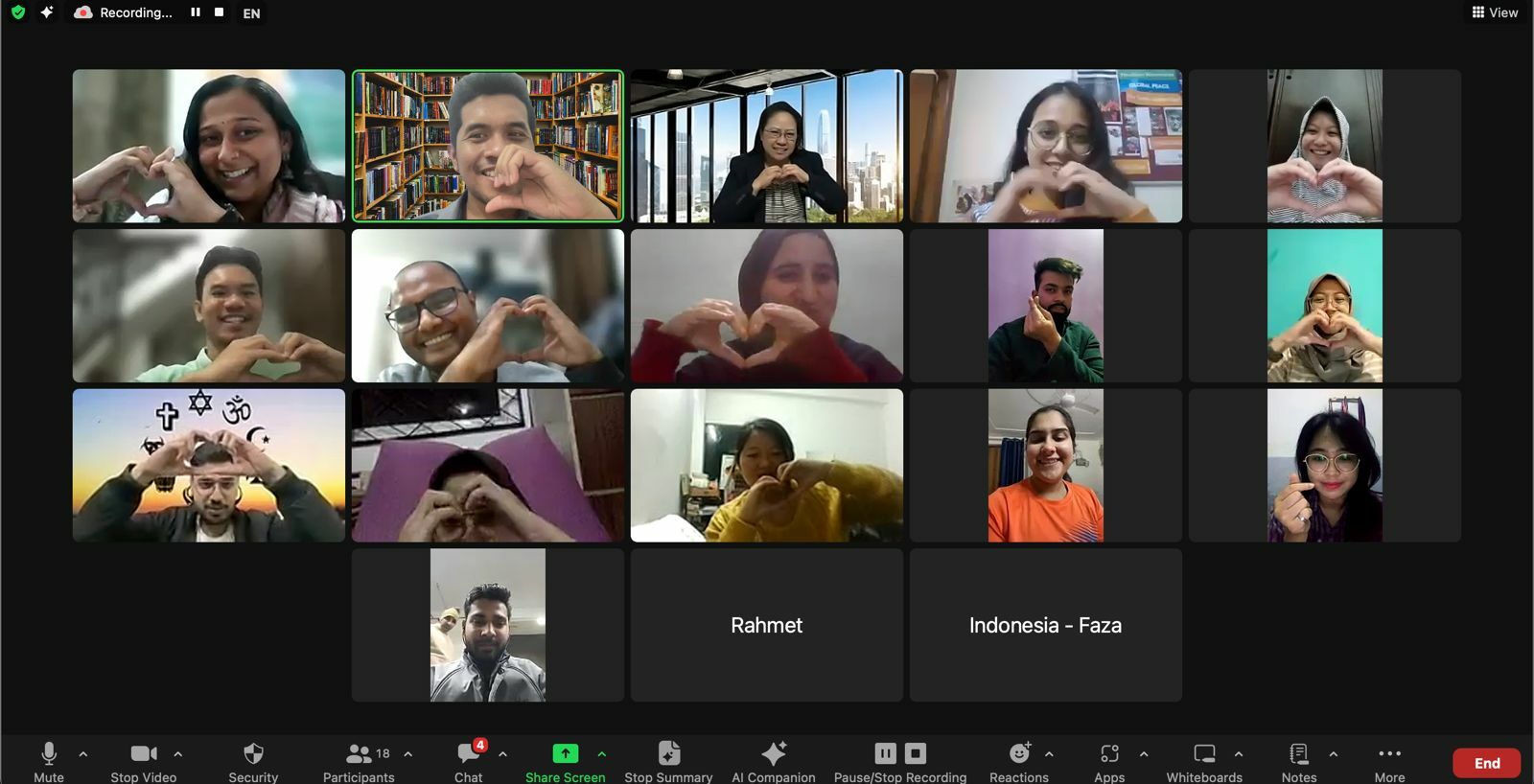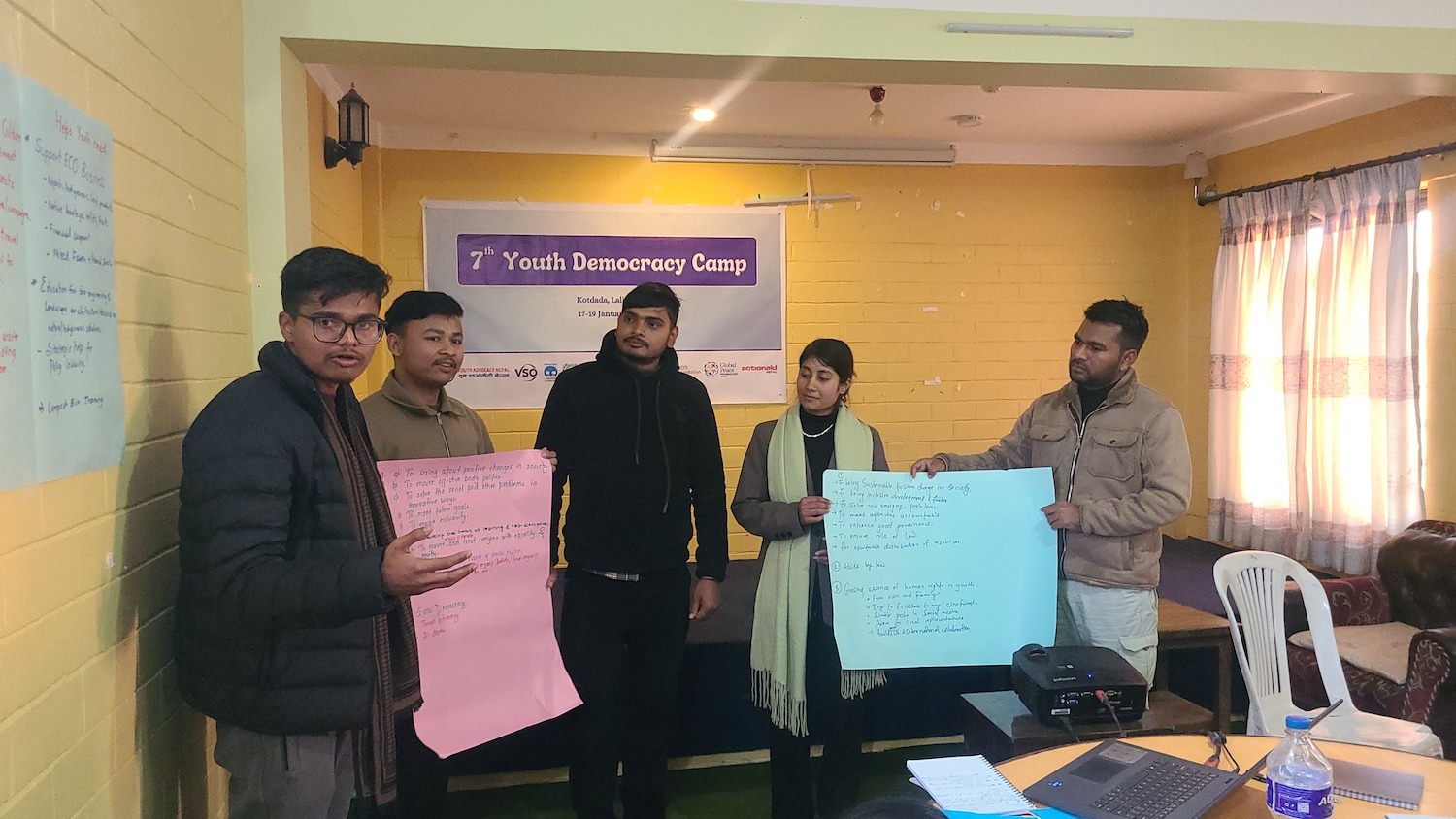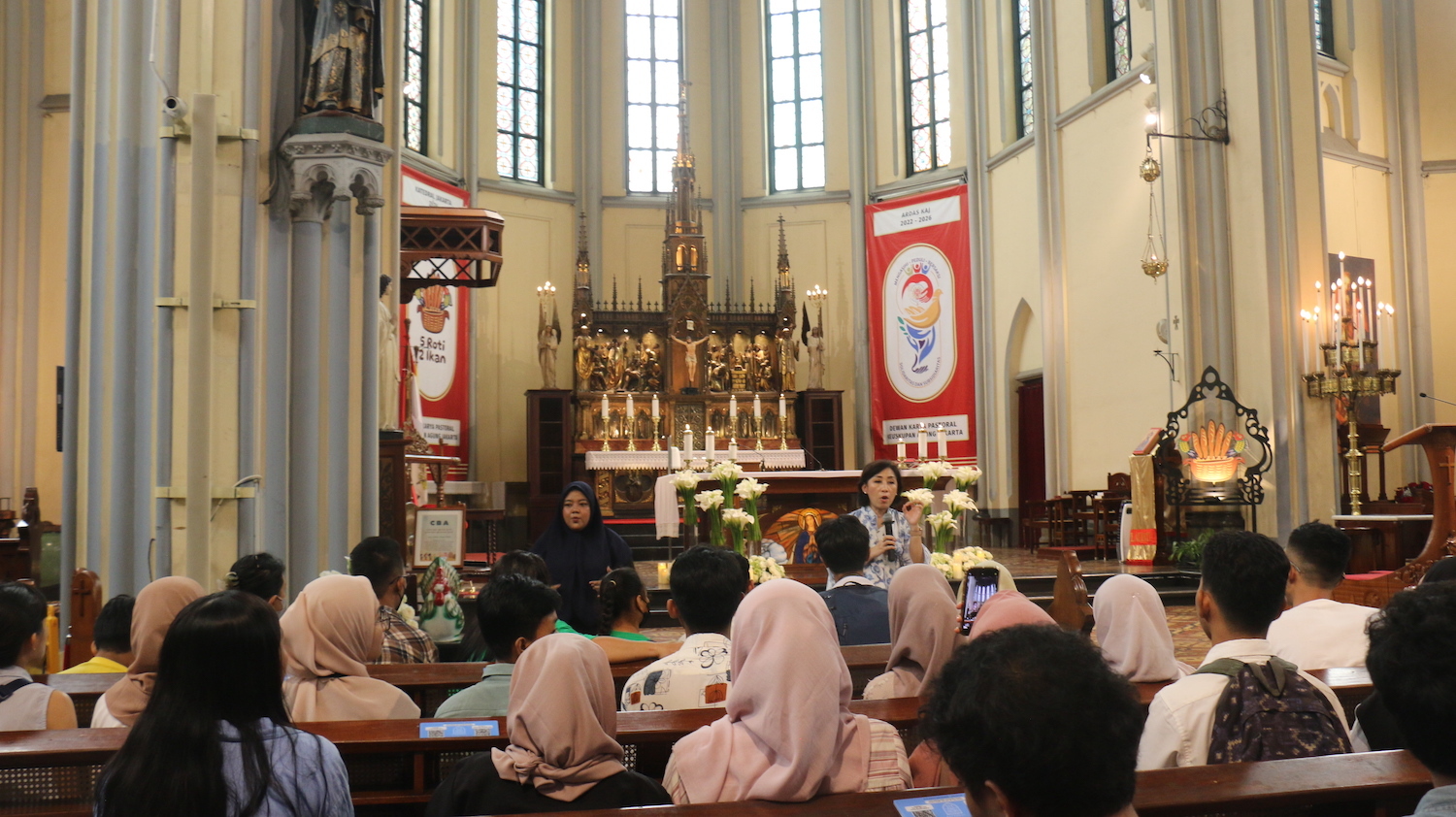4th IYLA features role of youth in future development
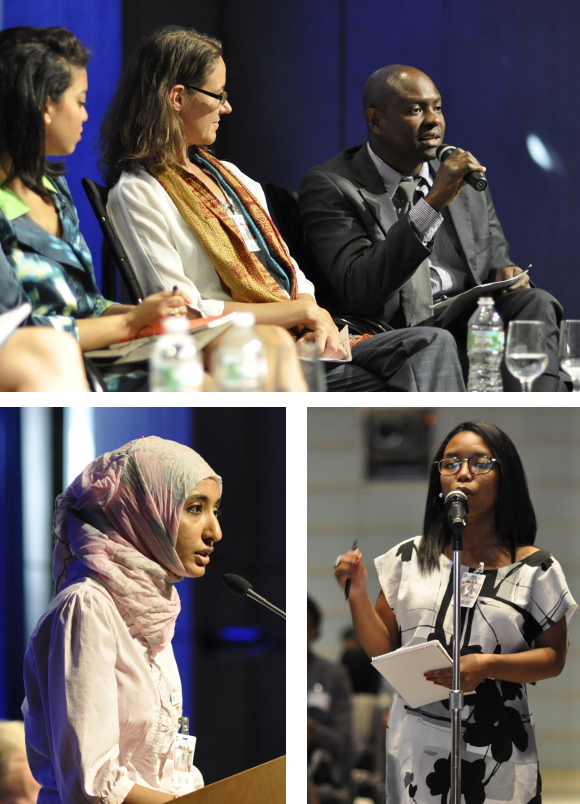
Speakers at the World Bank forum during IYLA.
Washington, DC – August 15, 2014 – Fatma Bazahy reminded the gathering of young professionals, entrepreneurs, social activists, and student leaders that she had just five to seven minutes to speak. “During each of those minutes 21 children in the developing world will die, mostly of preventable diseases,” the young Kenyan continued.
She was one of the panelists addressing the diverse international participants of the 4th International Young Leaders Assembly in forums at the World Bank on youth service and entrepreneurship. The programs stressed the need for young people to be engaged in their countries’ affairs and showcased projects that achieved that.
“Without the involvement of young people in areas that affect them it will be difficult for countries to move forward,” said Evans Musonde from Zambia. He represented the Africa Peace Service Corps that is working to integrate the societies on east and southern Africa through cross-border youth service exchanges. Clockwise: Evans Musonde, representing the African Peace Service Corps, Participant poses a question to the panel, Fatma Bazahy White House Young African Youth Initiative
Bazahy stressed the importance of family based health education since 80 percent of healthcare in the developing world is delivered in the home. She described her goal as “helping families to help one another.” Successful healthcare initiatives had to engage the community and not be imposed from outside.
Dr. Clarence Tan, an ambassador for Singularity University in Silicon Valley, said that the impact technology could make on development was large and ever-growing. He described the peaceful use of drones to deliver medical supplies to areas in Bhutan and Haiti that had no roads. Every year Singularity hosts 80 community leaders from 35 developing nations and teaches them about how the latest advances in technology can help their communities.
“Without the involvement of young people in areas that affect them it will be difficult for countries to move forward.” Evans Musonde, Africa Peace Service Corps
Abby Flottemesch of Atlas Corps said, “Skills exists everywhere in the world but opportunities do not exist everywhere in the world.” Atlas Corps provides those opportunities for young leaders in the developing world by providing one-year fellowships in the U.S. Their graduates then take their new-found skills back to their home countries and the projects they worked with their. Atlas also creates virtual networks of community leaders across the world, who are working on similar issues.
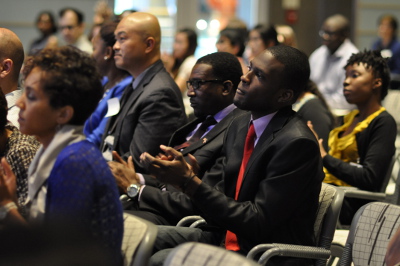
Audience at the World Bank.
The work of the U.S. Peace Corps was represented by Karen Scheuerer. “We see youth as change makers,” she said, noting the Peace Corps efforts to promote youth entrepreneurship. About three-quarters of the people the Peace Corps works with are youth.
Eight hundred young leaders, representing almost 70 countries, are taking part in the 4th IYLA with programs in Washington, D.C., Philadelphia, and New York from August 11-20, 2014. On August 16 participants will be at the National Constitution Center in Philadelphia to learn about the founding principles of the U.S. and their global implications. On August 19 they will attend forums at the United Nations in New York.
The theme of the 4th IYLA is “Moral and Innovative Leadership: Vision, Service, and Entrepreneurship.” The program highlights the importance of values-based and creative leadership and gives participants insight into the workings of government and social leadership at the highest levels.
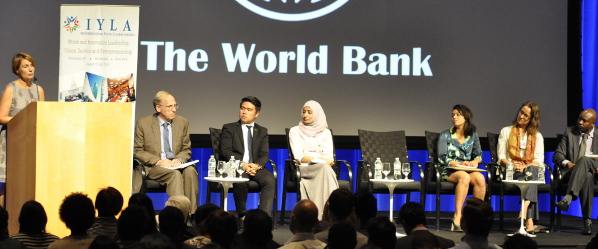
The Co-Conveners of the program are the Global Peace Foundation, the Global Young Leaders Academy with the support of the UN Secretary General’s Special Envoy on Youth and the World Bank Youth to Youth Community.
For further information, contact:
Kimihira Miyake
Global Peace Foundation USA
Director of Youth Division
email: [email protected]
mobile: (914)715-8517

